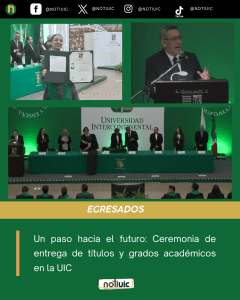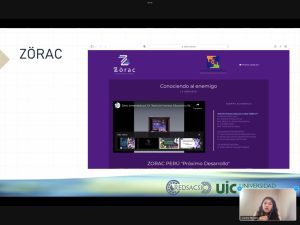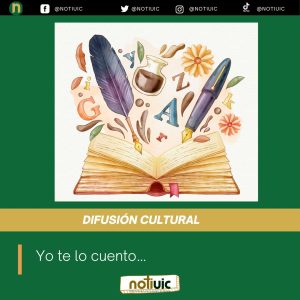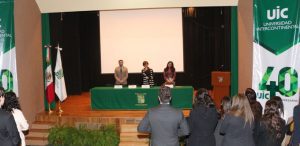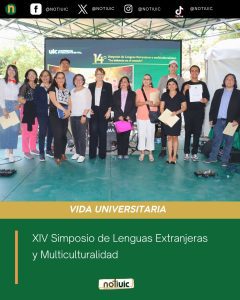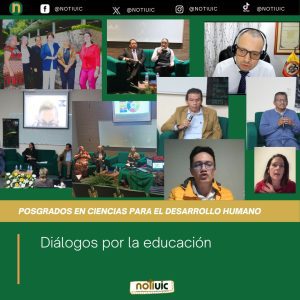Rhetoric
The term rhetoric, in its popular usage, is defined as “the art of influence that harnesses the most powerful of social forces, argumentation” (Heinrichs, 2007). This tekne or art of persuasion has been studied and practiced and remains nowadays the most efficient tool of eloquence to persuade an audience.
Rhetoric and liberal education
Since the early days of the written word, individuals have placed rhetoric at the central place of their liberal education. The Mesopotamians and Ancient Egyptians valued the ability to convince through effective speaking and writing.
Only until the rise of Greek and Roman democracies, and later, the Medieval Age, Classical, and Renaissance periods, that rhetoric not only became a theorized and developed discipline, but also an essential element of supreme education.
In such periods, rhetoric was seen as a political tool to understand the truth and magnify influence. Rhetoric was also a weapon to confront unfair argumentation and intellectual despotism (McKay, 2010). Therefore, a man capable of true rhetorical mastery was the absolute representation of excellence and power. “Vir bonus peritus dicendi / A good man speaks well” (Quintilian, 95 AD).
4th century B. C.
During the 4th century B.C., Aristotle laid the foundations of rhetoric in Treatise on Rhetoric. In it he defines the basic mechanisms that influenced the development of further rhetorical theories from Antiquity to our modern days. The philosopher defined rhetoric as “the faculty of observing all means of persuasion in any given case” (Cooper, 1932).
According to him, every rhetorical act occurs in a specific context defining the choice of a rhetoric genre and persuasion appeals. By understanding the rhetorical context, one can grasp a deeper understanding of the audience, develop convincing arguments (Roskelly, 2006) and become an effective speaker or writer.

Appeals of persuasion
Ethos
Or the ethical appeal, illustrates how the credibility and character of the speaker can influence the audience into considering that he or she is trustworthy.
Three qualities determine ethos: how knowledgeable the speaker appears, how believable he or she seems to be, and how sincere his or her intentions are.
Pathos
Or emotional appeal, is based on the alteration of the audience’s judgment through presenting the speech in a way that evokes strong emotions.
Pathos depends on how the speaker appears to the audience.
Logos
Or the reasoning appeal, relies on the arguments of the speech itself to do the persuading.
It can be used in inductive (making broad generalizations from specific observations) or deductive reasoning (making a general statement and examining the possibilities to reach a specific, logical conclusion).
Subsequently, other classical rhetoricians worked to codify and theorize the components and objectives of rhetoric, which have formatted much of our modern understandings.
In Ancient Rome, Cicero and Quintilian left their mark on the study of rhetoric by developing an approach to guide the study of rhetoric in On Invention, On Oration and Topics, and a system of rhetorical training in Institutio Oratoria. In his treatise, Quintilian explains the criteria that make a speech outstandingly powerful.
Five Canons of Rethoric
| Inventio (Invention) | The process of consistently exploring arguments on a given topic. |
| Dispositio (Arrangement) | The process of structuring effectively the arguments of the speech. |
| Elocutio (Style) | The process of using elements of style in the arguments; figures of speech, length, etc. |
| Memoria (Memory) | The process of memorizing the arguments of the speech and other references; quotes, facts, etc. |
| Actio (Delivery) | The process of practicing the physical delivery of the speech; gestures, tone of voice, etc. |
Purposes of Rhetoric
The purposes of Rhetoric shifted over time, following events in History, the evolution of societies, and social changes.
- Rhetoric occupied a predominant place in politics: It spread freedom and liberty, enlighten those who could not understand complex logical arguments, or encourage citizens to vote for or disagree with the legislation.
- On the religious scale: Rhetoric was used to spread the gospel and preach to believers.
- On the scientific and philosophical scale: It was a tool empowering writers and orators to spread knowledge and truths.
Rhetoricians have expanded their study of rhetoric to not only master the spoken or written word, but also visual arts (McKay, 2010). This due to the proliferation of conflicts and wars leading to the creation of new means of communication, such as propaganda and mass media.
Classical and Modern Rethoric
In the 21st Century, the contrast between classical and modern Rhetoric is particularly noticeable.
In the era of overloading information, rhetoric is present everywhere. From the most intimate tie to a more global topic, it shapes our daily life and the world we live in. Whether it is in the news, advertisement, digital culture, movies, or other practice through which we create meanings.
We are constantly receiving loads of information soliciting, directly or indirectly, our affect and calling for our attention, cooperation, and involvement.
Rhetoric has then been adjusted to the evolution of society and means of communication. New theories and types of rhetoric emerged, shifting from the sole focus of persuasion to interest in the study of its visual, non-verbal elements or manipulative aspects.
Nowadays, there is nothing that is part of an individual daily life that cannot be analyzed from a rhetorical perspective (Foss, 2012).
Rethoricians and interpreters
Rhetoricians and interpreters share a common trait. They delightfully master the power of eloquence.
Speakers intend to impart a message to an audience, simultaneous interpreters “give to or receive from another person information about that person’s needs, desires, perceptions, knowledge, or affective states”.
Interpreters take on the role of the speakers’ pantomimes; they temporarily lend their voice and personality to “help people who speak different languages communicate in specific situations” (Gile, 2009). Interpreters do not elaborate on the rhetorical aspects of the speech, but they are veritable orators relaying to the audience the speaker’s intentions.
in De Oratore (55 B.C.E) Cicero depicts what he calls “the ideal orator”. His portrayal of the archetypal rhetorician possesses similar characteristics to the representation of the “ideal interpreter”.
Rhetoricians and interpreters naturally possess exceptional intellectual capacities, practice continuously and assiduously, and have unlimited knowledge.
Parts of Rhetoric
Moreover, by examining Cicero and Quintilian’s canons of Rhetoric, one can notice that interpreters’ and rhetoricians’ strategies are closely linked. Both use the notions of ethos, pathos, and logos, in their speech delivery (Fan, 2013):
Inventio
According to Cicero, the invention process is a continuous search and development of new arguments.
By analyzing the context and the audience, the speaker can transform the content of the speech for an optimum effect on the audience.
For interpreters, it implies adapting their delivery to the target audience’s language (ethos) while conserving the original ideas (logos) and the emotional effects of the speech (pathos) rather than rendering faithfully the content of the speech words by words.
Dispositio
The disposition processis a meticulous organization of the speakers’ ideas.
Interpreters are not familiar with the speaker’s speech structure while interpreting simultaneously. Therefore, they must listen carefully to the content to notice keywords, such as figures of speech and logical connectors, to convey the arguments effectively.
Elocutio
Eloquence is one of the most efficient tools while delivering a speech.
The elements of style the speakers use in their arguments are what makes the essence of their speech. Interpreters must familiarize themselves with rhetorical structures, registers, etc., to use appropriate language and maximize the style impact.
Memoria
To deliver a compelling speech and seem effective, speakers do not rely on their notes and memorize most of their arguments.
To be clear and precise, interpreters must rely on their memory as they cannot take lengthy notes without risking losing their delay. Instead, they develop mechanisms to remember the ideas of the discourse.
Actio
The delivery of speech gathers all the elements that the speaker uses to transmit his ideas to the audience:
- Emotions
- Tones of voice
- Gestures
- Facial expressions
If the interpreters do not consider those factors, the speech can lose its impact and the message is not transmitted effectively.
My point of view
Before relating Rhetoric with my personal interpreting experiences, I always thought that Rhetoric was strictly limited to specific fields like law or politics. I could have not imagined the considerable role it has in our daily life and the essential part it plays in any act of communication, and more particularly, in my interpreting process.
Through my rhetorical analysis, I understood that interpreters are not solely linguists that translate words from one language into another. Instead, they listen to the speaker not merely to understand the messages, but to find efficacious strategies to analyze, organize, convert, and apply those resources from the original language to their own.
When communication is the main purpose of the interpreter’s activity, Rhetoric changes the way they approach the speech and transforms their interpreting techniques into a real performance.
The success and quality of their performance depend on their rigorous investigation of arguments, their careful observation of the speech’s style, their organizing capability, and their alert memory. The appreciation of Rhetoric in Simultaneous Interpreting is inherent to the success of optimal communication.
Para saber más
Licenciatura en Traducción, Localización e Interpretación, Licenciatura en Filosofía, Maestría en Filosofía y Crítica de la Cultura, Universidad Intercontinental

